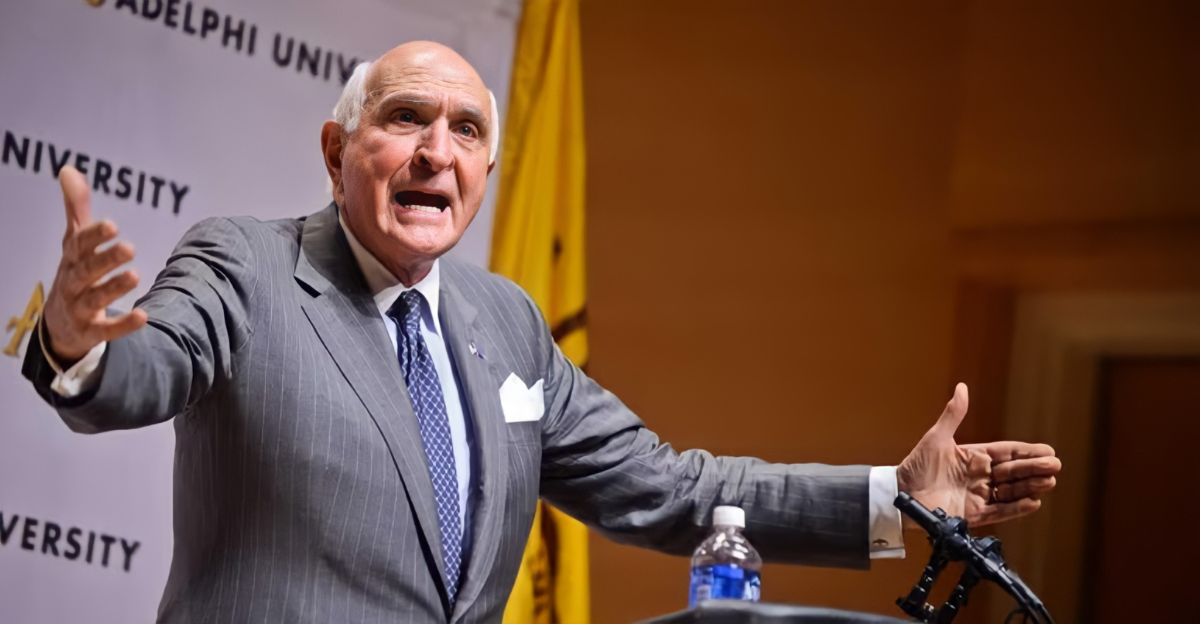
Corporate America is witnessing a seismic shift as influential business leaders reverse their political stances in response to the Trump administration’s economic policies. Home Depot co-founder Ken Langone, the billionaire investor worth $9.5 billion, has emerged as a surprising Trump convert after months of harsh criticism.
According to The Financial Times, Langone called Trump’s tariffs “nonsense” in April 2025, but dramatically reversed course during a July 15 CNBC interview, declaring he’s now “sold on Trump” and believes the president could be “one of our best presidents ever.”
This transformation reflects a broader corporate recalibration as major companies navigate political pressure while managing shareholder expectations, diversity policies, and federal compliance requirements in an increasingly polarized business environment.
Stakes Rising
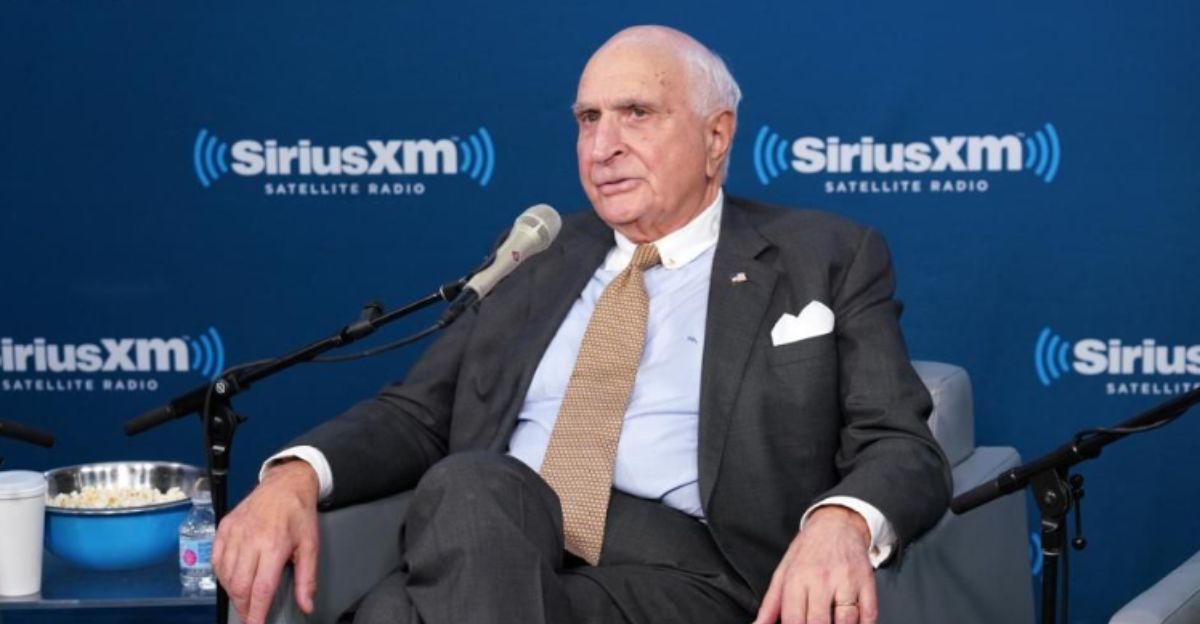
The pressure on Fortune 500 executives has reached unprecedented levels as they balance political compliance with business strategy. According to a Littler survey of 350 legal and HR leaders, nearly 85% of employers believe federal DEI policy changes will impact their business during Trump’s first year in office.
Home Depot quietly removed its diversity webpage in March 2025, joining Walmart and Target in backing away from explicit DEI language under conservative pressure. “The findings illustrate that topics dominating the headlines—including immigration and inclusion, equity and diversity—are creating significant challenges for employers both from a workforce management and legal perspective,” the Littler report concluded.
Langone’s public endorsement carries particular weight given his $300 million in charitable donations to NYU Medical Center and his reputation as a principled Republican donor who previously felt “betrayed” by Trump after January 6th.
Corporate Evolution

The modern American corporation has undergone a dramatic transformation since 2020, evolving from profit-focused entities into political actors expected to take public stances on social issues. This evolution accelerated after George Floyd’s death, when companies rushed to implement DEI programs and hire chief diversity officers.
According to AccessWire, the Alliance for Inclusive and Multicultural Marketing recognized Home Depot as the most culturally inclusive brand of 2023, scoring high across multiple demographic categories. The company’s original DEI page proclaimed that maintaining “a diverse, equitable and inclusive environment” was “a competitive advantage and key to our long-term success.”
However, as Retail Brew reported, this language disappeared overnight in March 2025, replaced with generic messaging about “welcoming culture” that avoids explicit diversity references.
Pressure Mounting

Trump’s aggressive assault on corporate DEI programs has created what analysts call a “seismic shift in the risk calculus” for America’s largest companies. Attorney General Pam Bondi issued directives to investigate and eliminate illegal DEI preferences at private companies receiving federal funds, while Trump threatened to strip federal contracts from corporations maintaining diversity programs.
According to USA Today, eleven major brands had rolled out updates to their diversity plans by February 2025, but that number dropped to just two by May as companies adopted a “wait-and-see” posture.
Bloomberg reported that the political spotlight shifted to immigration and tariffs by spring, giving corporations breathing room to assess their next moves without immediate federal retaliation threats, though uncertainty remained high across boardrooms.
The Langone Moment
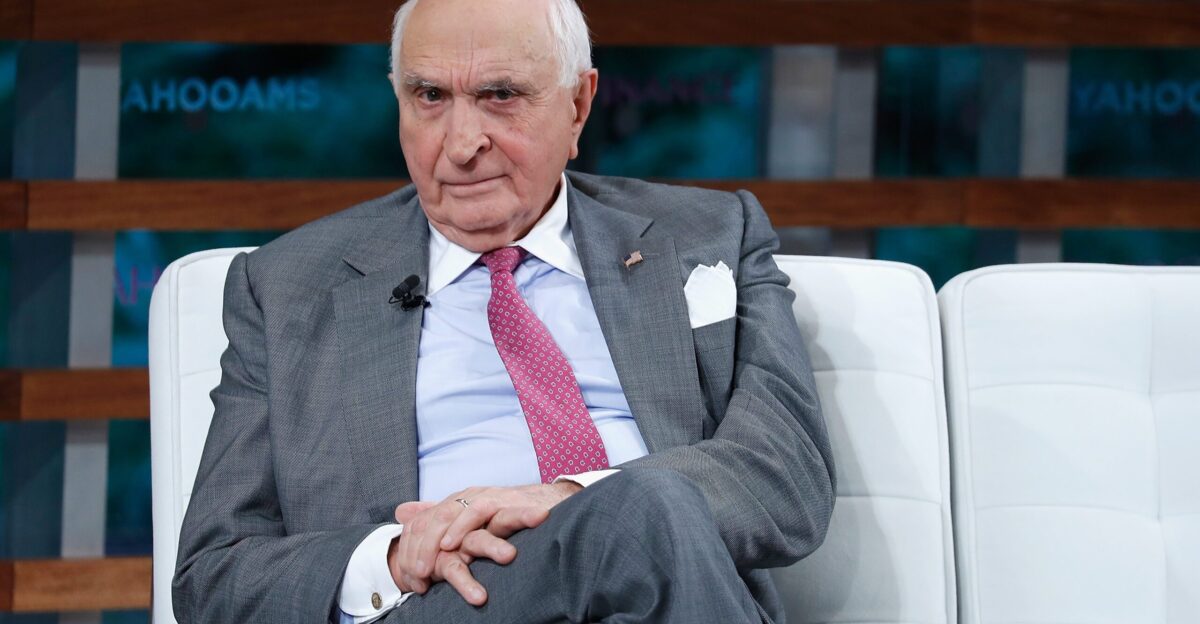
On July 15, 2025, Ken Langone delivered his stunning reversal during a live CNBC “Squawk Box” interview that instantly became must-watch television for financial markets. “Look, let me tell you right now, I am sold on Trump,” Langone declared to host Becky Quick, his voice carrying the conviction of someone who had wrestled with his conscience and emerged with clarity.
According to the White House website, he praised Trump’s Iran strike as “miraculous” and endorsed the “One Big Beautiful Bill Act” as having “a lot of merit” for triggering significant economic growth.
The moment marked the definitive end of Langone’s criticism phase, which had peaked when he used some expletive words and told The Financial Times in April that Trump’s 46% tariff on Vietnam was “too aggressive, too soon.” The 89-year-old billionaire’s transformation represented one of the most dramatic political reversals by a major business figure in the Trump era.
Regional Impact
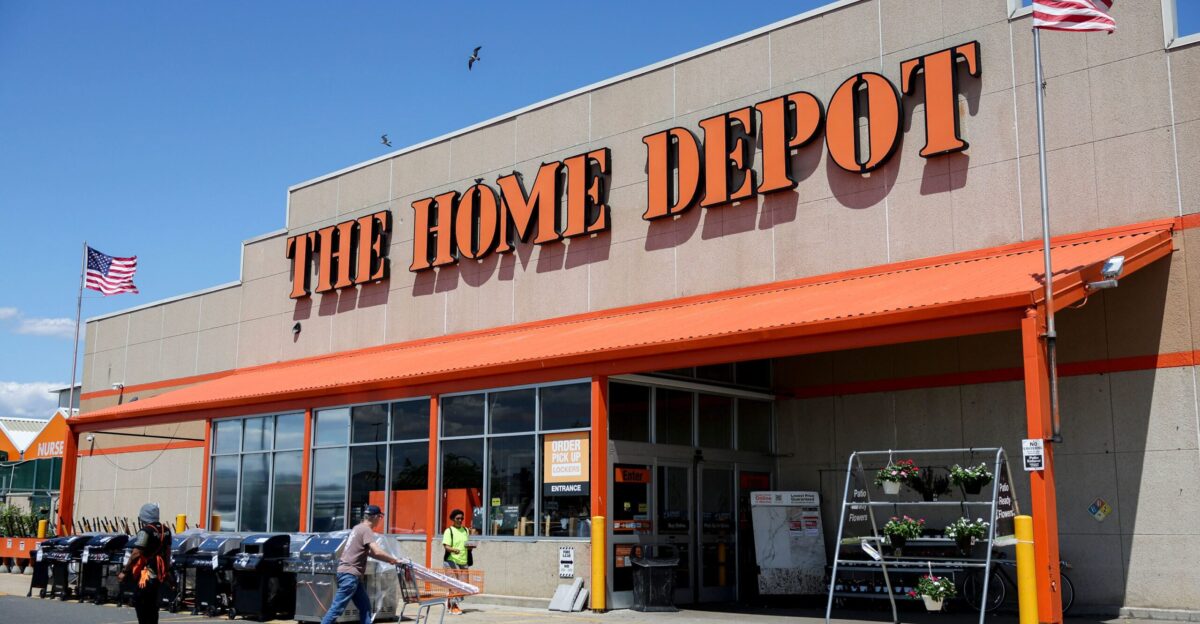
The corporate retreat from DEI language is reshaping hiring practices across American regions, with particular impact in diverse metropolitan areas where Home Depot operates major distribution centers. In cities like Atlanta, Miami, and Los Angeles, where Home Depot’s workforce reflects significant diversity, employees are questioning what the policy changes mean for career advancement and workplace culture.
According to HR Grapevine, the company’s new “WeAreTHD” messaging emphasizes “competitive wages and benefits” rather than inclusive environment promises, signaling a fundamental shift in how America’s second-largest retailer positions itself to workers.
Regional managers report increased confusion among staff about diversity training programs and advancement opportunities previously tied to DEI initiatives, with some employees expressing feeling abandoned by the policy shifts.
Human Stories

“When you made a mistake, admit it,” Langone told CNBC’s Becky Quick, his weathered hands gesturing emphatically as he explained his transformation from Trump skeptic to believer during the pivotal July interview.
The billionaire’s journey reflects a broader narrative playing out across corporate America, where executives grapple with political pressure while maintaining business relationships and employee morale. According to Reddit discussions among Home Depot employees, former diversity professionals describe feeling abandoned by the company’s policy shifts, with one telling reporters about the challenge of explaining to diverse employees why their advancement programs disappeared overnight.
Meanwhile, conservative employees express relief that political messaging has been removed from workplace training, illustrating the deep divisions these policies created within corporate America as companies navigate an increasingly polarized political landscape.
Market Response
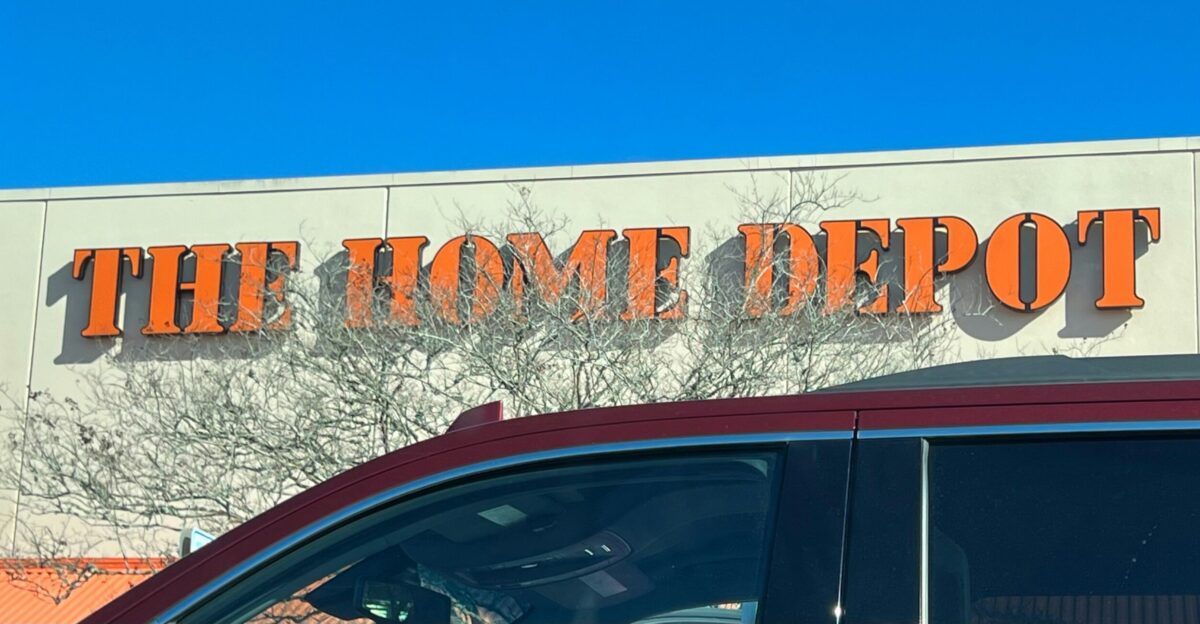
Wall Street has responded positively to Langone’s Trump endorsement, with Home Depot shares gaining 2.3% in the week following his CNBC appearance as investors interpret his stance as signaling reduced regulatory risk. The broader retail sector has seen similar patterns, with companies that proactively removed DEI language outperforming those that maintained diverse hiring commitments.
According to the Tax Foundation, Trump’s “One Big Beautiful Bill,” signed into law on July 4, 2025, permanently extends individual tax cuts from 2017 and adds $3 trillion to the national debt while providing significant benefits to businesses through enhanced depreciation and R&E expensing.
The White House noted that Langone specifically praised the legislation’s potential to “trigger such significant economic growth that we might see tax revenues going up through the profitability bracket,” representing a complete reversal from his earlier economic skepticism.
Broader Implications
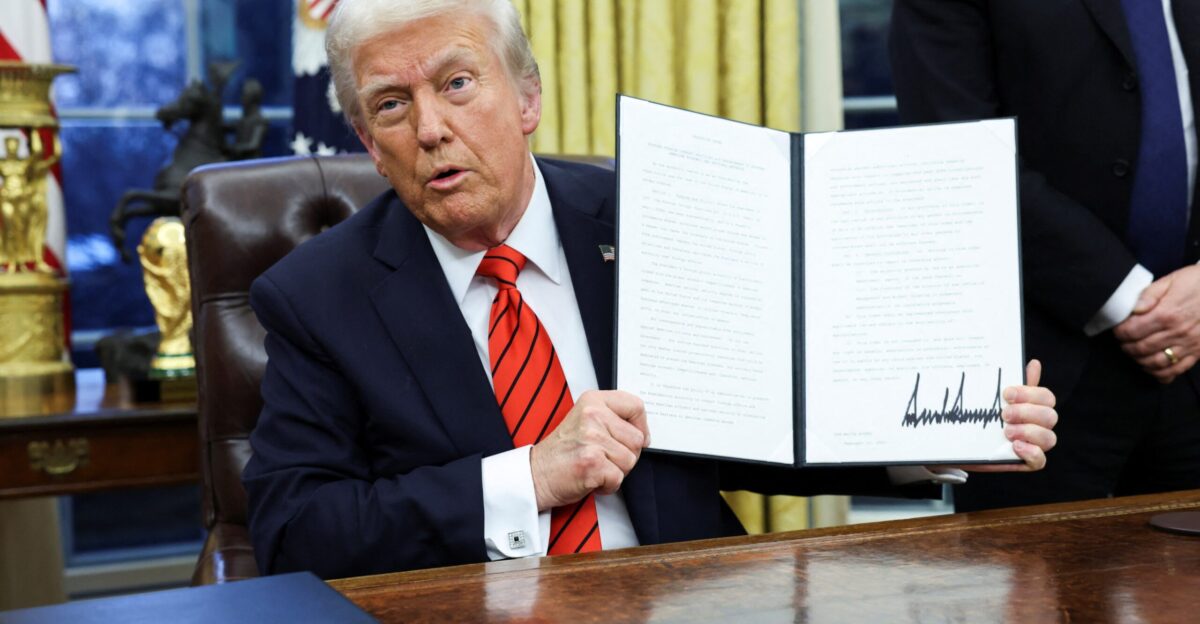
The convergence of Langone’s political reversal with corporate America’s DEI retreat represents a fundamental realignment in how business leaders navigate political pressure in the Trump era. According to USA Today, over 80% of DEI-related corporate changes occurred after Trump’s January 2025 inauguration, though the pace has since slowed as companies assess the new political landscape.
Corporate governance expert Alison Taylor from NYU’s Stern School of Business told Corporate Compliance Insights that “there’s a world of difference between an effective approach to driving inclusion and a legalistic program based on ticking the box.”
Langone’s transformation from calling Trump’s policies “poorly advised” to declaring him potentially “one of our best presidents ever” mirrors the journey of numerous Republican donors who initially distanced themselves from Trump after January 6th but have been won over by policy results, particularly the successful Iran nuclear strikes.
Future Questions
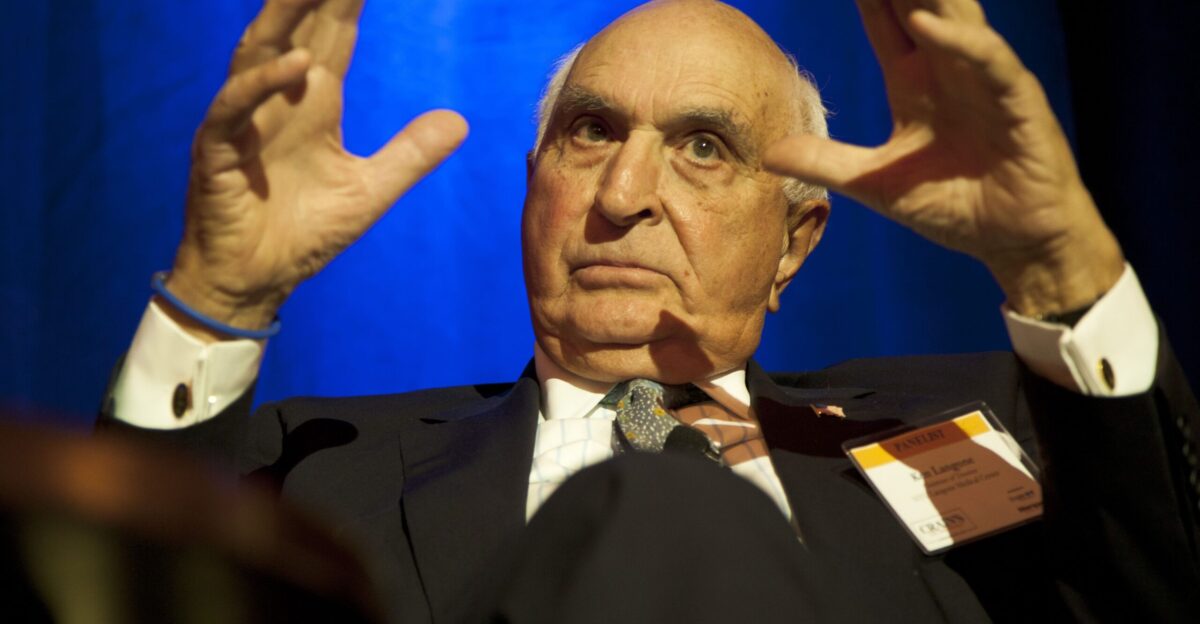
As Langone approaches his 90th birthday in September, his Trump endorsement raises compelling questions about whether other major Republican donors will follow suit in abandoning their criticism of the president’s policies. Will Home Depot’s cultural reset prove successful in maintaining employee morale and customer loyalty while avoiding political backlash from both conservative and progressive groups?
According to Fortune magazine’s analysis of employer sentiment, the majority of business leaders believe Trump’s policies are creating “significant challenges” for their operations, yet many are adapting rather than resisting.
The true test may come in the 2026 midterm elections, when voters will render their verdict on whether Trump’s economic policies—praised by Langone as creating unprecedented American optimism—actually deliver the promised prosperity for the billionaire who once felt “betrayed” but has become one of Trump’s most enthusiastic supporters.
